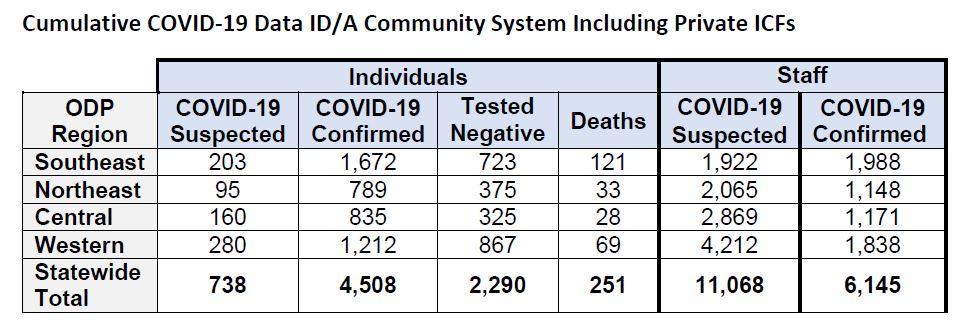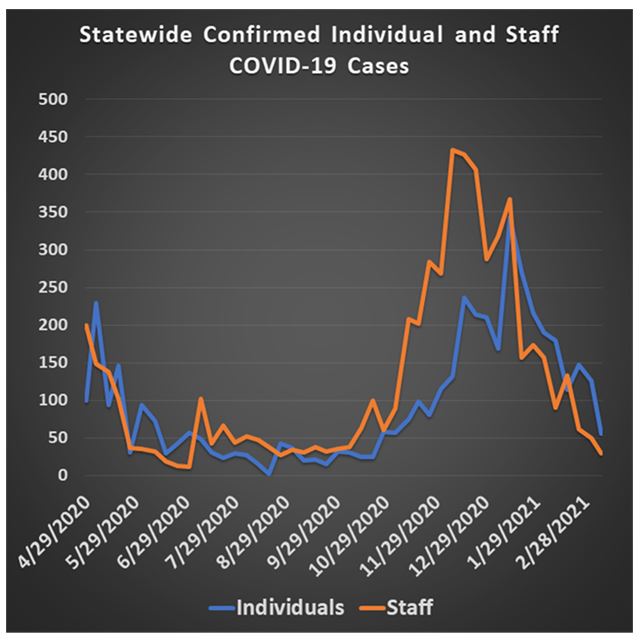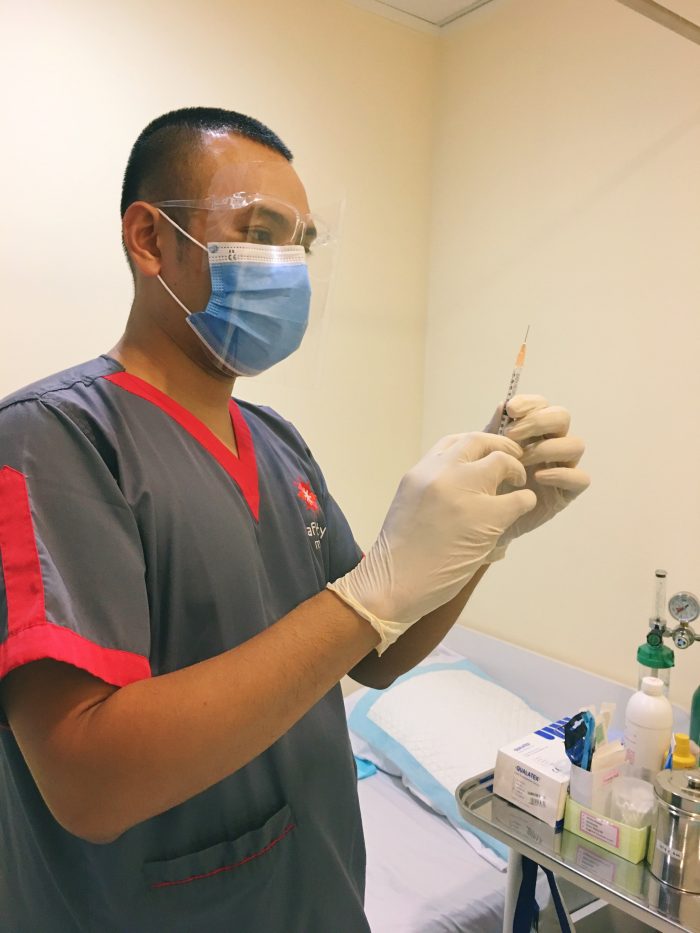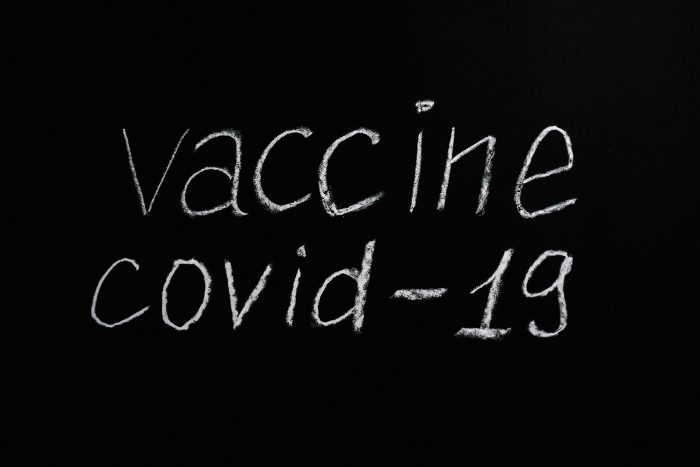Date of Data Extraction: 03/10/2021
This report is produced using data on COVID-19 that is self-reported by ODP providers and Supports Coordinators. ODP began capturing this data in mid-March 2020.
COVID-19 Suspected means that a person has been tested for the COVID-19 virus and is awaiting the test results OR a test has been ordered by a health care practitioner, but the person has not been tested yet.
COVID-19 Confirmed means that a person was tested for the COVID-19 virus and test was positive OR was diagnosed with COVID-19 by a health care practitioner even if no test was completed.
Tested Negative means that a person was tested for the COVID-19 virus and test was negative.
Individuals
COVID-19 data for individuals with an intellectual disability or autism is captured using the Enterprise Incident Management (EIM) system. Data is captured for individuals who:
- Reside in a private Intermediate Care Facility for Individuals with an Intellectual Disability;
- Receive Home and Community-based (HCBS) Waiver services;
- Receive base-funded services; or
- Reside in ODP-licensed settings but do not receive HCBS Waiver or base-funded services, e.g. are private-pay or whose services are funded by another state.
Data for Pennsylvanians with an intellectual disability or autism who are not known to ODP (i.e. who do not fall into one of the above categories) is not captured.
Staff
COVID-19 data for staff persons who support the individuals identified above was captured using an email resource account maintained by ODP through June 10, 2020. From June 10 forward providers report staff COVID-19 data via a web-based form developed by ODP. “Staff” include any staff employed by the service provider. Supports Coordinators who have no physical contact with enrolled individuals since mid-March are not included.

Notes:
- The amount of time between testing for COVID-19 and obtaining the test results may be as much as 7 days.
- It takes 24 hours for data submitted through EIM or through the resource account to be available to ODP for aggregate, statewide reporting.
- Data is not validated against Department of Health records.
- Data on confirmed, tested negative and deaths is cumulative.
- Effective June 10, 2020 ODP transitioned to a web-based tool for the reporting of Staff COVID-19 cases.
The graph below gives a visual of the week over week trend for COVID infections for both individuals and staff:

COVID-19 Data for ODP licensed residential settings and private ICFs by county can be found here.
COVID-19 Data for State Centers is updated daily and can be found here.



















